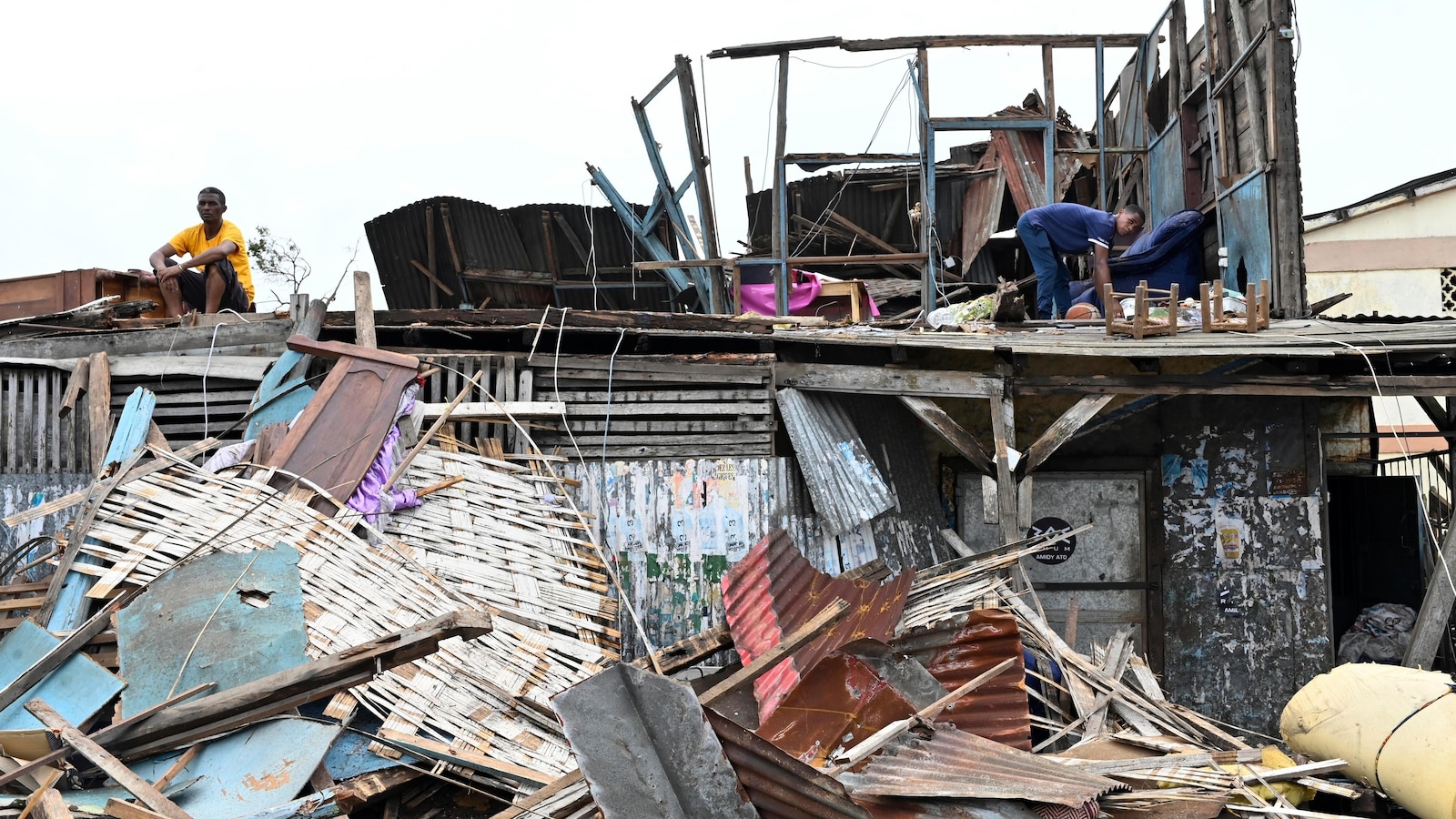Twelve years before host nation Qatar took to the pitch against Ecuador for the opening game of the 2022 FIFA World Cup, kafala, a system of employment sponsorship for foreign workers was already casting an ominous shadow across the event.
After securing the bid for Qatar and succumbing to a bribery scandal related to the hosting rights for that very country, former FIFA president Sepp Blatter called the selection “a bad choice.”
Tack on widely reported human rights abuses and the small Gulf Arab nation has been a contentious choice to host world soccer’s biggest event. It’s the first time the World Cup has been held in an Arab country, and when Qatar won the bid for this year’s World Cup back in 2010, it lacked the infrastructure — a metro system, major hotels, and stadiums — necessary to host a massive international event which led to an estimated $220 billion investment, according to Quartz.
Focus on its labor system zeroed in on the construction industry, since so many new facilities were built and because it can be such dangerous work. A Guardian story from 2021 found that 6,750 South Asian workers in all industries died over a 10-year period in Qatar; only 37 of those workers were directly linked to the construction of World Cup facilities. Still, as the Washington Post reported earlier this month, many families of deceased migrant laborers still lack meaningful information about how and why their loved one died, as well as compensation for their loss.
Since migrant workers are so prevalent in Qatar’s economy — approximately 90 percent of Qatar’s workforce — other categories of laborers, with whom World Cup patrons are likely to interact, also face the possibility of abuse and exploitation.
FIFA has pledged to commit a portion of its proceeds from the Qatar games to support migrant workers, according to Reuters. FIFA did not respond to Vox’s questions regarding plans for distribution of that funding by press time.
Migrant workers in most countries are vulnerable by the very nature of their position and social status. But in Qatar, the economy depends on migrant workers, and there is an entire legal system set up to get people who need jobs into the country. But having legal status doesn’t exactly guarantee rights and freedoms for these workers, and though there have been improvements, international scrutiny of the kafala system is challenging for Qatar to accept.
“It is a society with no real political freedoms, there is no culture of public debate and criticism of how the state operates,” Mustafa Qadri, the founder of Equidem, a human rights organization based in the UK and active in Qatar, told Vox in an interview. “[The state] has an approach of, ‘any criticism is an attack on us,’ so that very quickly shifts to a siege mentality.”
The kafala system is baked into Qatar’s economy
The kafala, or sponsorship system, is widely practiced throughout the Persian Gulf region, and some neighboring countries. In Qatar, the practice dates back to the early 20th century to support the pearl and other commercial industries, according to the Council on Foreign Relations. It expanded decades later, when the emirate, injected with wealth from its energy resources, brought in laborers to build new infrastructure in a period of rapid growth.
“Typically [kafala] means that the worker is entirely dependent on the employer for their entry into the country, their stay in the country, their job — even their exit from the country,” said Max Tuñón, the head of the International Labor Organization office in Doha, Qatar. “Those multiple dependencies put the worker in a situation where they’re vulnerable to exploitation, because there is such a huge imbalance of power between the worker and the employer.”
Initially, the system was supposed to offer protection for migrant workers, most from South Asia, Africa, and Asian countries including the Philippines. Workers coming alone, without any family members or other connections and entering into an unfamiliar place where they understood neither the language nor the culture could theoretically rely on their sponsor to protect them and provide what they needed, according to Houtan Homayounpour, the former head of the Qatar office of the International Labor Organization (ILO).
Migrant workers make up approximately 77 percent of the Qatari population, according to a 2022 International Organization for Migration report, and they primarily come from South Asia. The largest number of workers by far are employed in construction, followed by wholesale and retail trade, and domestic services such as cooking, cleaning, and childcare.
“Officially, the movement and welfare of these workers is subject to international treaties, government regulations, and other formal rules,” according to a publication by The Gulf Labour Markets, Migration and Population program of the Gulf Research Center. In practice, an expansive extralegal market dominates the entire migration process, beginning with the very recruitment of workers in their home countries.”
Often, Qadri said, people are recruited in their home country by subcontractors who can charge exorbitant rates for those visas and engage in contract-switching — essentially duping job-seekers by providing a contract for a job that isn’t actually available on the other side.
Visa centers have been established in some host countries to help make the recruitment and visa granting process more transparent and less exploitative, but the illegal market still proliferates. “I suspect part of it, is it’s a business activity,” Qadri said. “If [Qatar] were to really crack down on it, then you’re looking at challenging a system where people are making lots of money. It’s very hard to prove because it’s so secretive, so illicit. So the fundamental structural changes you need to take will take more than just changing laws and having experts, it’s a political issue.”
In the traditional kafala system, migrant workers’ individual and corporate employers have total control over a worker’s residency status because it’s entirely dependent on their employment status. Non-Qataris cannot become naturalized citizens.
Qadri described a system still highly stratified according to race, ethnicity, gender, and national origin, calling it, “a textbook case of discrimination.”
“You’ll go to somewhere like Qatar and you’ll notice, for example, the doormen — the liveried doormen at these expensive hotels — they’re typically African,” Qadri told Vox. Hotels typically employ Filipino workers in client-facing roles, he said, while construction workers often come from South Asian countries like Nepal, Bangladesh, and India.
That stratification starts in the recruitment process; according to an April 2020 report by the UN Special Rapporteur on contemporary forms of racism, racial discrimination, xenophobia and related intolerance. “Low-income (and even high-income) migrant workers reported that salaries greatly depended on their countries of origin, such that workers performing the same tasks often earned significantly different salaries,” the report found. “This is partly due to poor labour regulations regarding pay equity but […] national origin discrimination and racial and ethnic stereotyping also contribute to the problem.”
In September 2020 Qatar instituted a minimum wage of $274 per month for all migrant workers as an attempt to address the issue.
“Among migrant workers’ most common grievances are non-payment or delayed payment of wages, crowded and unsanitary living conditions, and excessive working hours,” according to a 2021 interview with Hiba Zayadin, a Gulf researcher at Human Rights Watch. Qatari Labor Minister H.E. Ali bin Samikh Al Marri recently told FIFA President Gianni Infantino that $350 million had been paid out to workers, typically for late or unpaid wages, since 2018.
Women workers in domestic labor and the hospitality industry also face specific abuses made more challenging in a deeply patriarchal society that limits women’s freedom of movement. Sexual abuse and harassment in particular are difficult to document because they are difficult to report; though there are new avenues for reporting labor complaints, sexual assault and abuse are more daunting to report due to Qatar’s zima law, which criminalizes extramarital sex. According to a Human Rights Watch report from 2021, “These laws disproportionately impact women, as pregnancy serves as evidence of extramarital sex and women who report rape can find themselves prosecuted for consensual sex.”
Qatar has instituted some reforms, but they’re not enough
In the face of international criticism Qatar has instituted some labor reforms for migrant workers over the past five years in addition to the ability to change jobs and leave the country without employers’ permission.
“We don’t say the kafala system has been abolished, but we say the most problematic elements of kafala have been dismantled,” Tuñón said.
There are now online reporting mechanisms, both with the Qatari Ministry of Labor and with FIFA, to submit possible labor law violations. Tuñón told Vox that in 2020, about 11,000 complaints were made to the Ministry of Labor; after moving the complaints mechanism online the following year, that number increased to 24,000. Still, he acknowledged, even if they have access to the complaints channel, workers may avoid using it because they fear retaliation from their employers.
Then there’s the question of getting justice for crimes against migrant workers. Though there are labor courts and a dispute resolution system, it can take months for workers to recover lost wages, for example, because there isn’t an adequate enforcement mechanism. Workers can’t organize and agitate for better wages and conditions, because, “There are no independent trade unions in Qatar,” Tuñón said. Instead, the ILO has worked with the government to allow elected migrant worker representatives at the individual company level, but that doesn’t serve workers who are employed by individuals or families, like nannies, maids, cooks, and other domestic workers.
“Over time, we want to build up these platforms for workers’ voices; first at the enterprise level, but then eventually grow into the sectoral level and, eventually, the national level,” Tuñón said.
There are a variety of reasons Qatar’s labor reforms aren’t expansive and entrenched despite the international attention the World Cup has brought, but Qadri pointed to two in particular. “It’s never the real power structure” making decisions about labor laws, he said. “It’s never the Ministry of Interior, or the real decision-makers, or the most powerful owners of the biggest businesses; [they] are not really part of that conversation.” Without buy-in from the most powerful and influential stakeholders, reform can’t permeate society. That’s another problem, Qadri said; the kafala and other deep inequalities are part of Qatari society, and reforming labor laws addresses only part of the problem, he said.
“You can’t talk about this without talking about the whole human rights spectrum.”














